Turkey and Greece. Cold War airspace
"Sworn Neighbors"
Mutual hostility has been accompanying relations between Greece and Turkey since the time when, during the national liberation war of 1821-1829. Greece gained political independence from the Ottoman Empire. Over the next century, Greece and Turkey fought each other four times — in the Greco-Turkish War of 1897, in the First Balkan War, the First World War and the Greco-Turkish War of 1919-1922. The main reason for the hatred of the Greeks towards Turkey was not only historical resentment over the centuries of Ottoman rule and the destruction of the Byzantine Empire, but also the desire to unite all the Greek lands in the Greek state. Meanwhile, even after the declaration of independence of Greece, a significant part of the Greek lands remained within the Ottoman Empire - this is Epirus, Thrace, and Macedonia, and numerous islands of the Aegean Sea, including Cyprus and Crete, and the western and northern (Pontus region) Malaya coast Of Asia. Throughout the XIX century, the territory of the Ottoman Empire gradually decreased, but the unification of all Greek lands as part of Greece did not occur. Only as a result of the Balkan wars Greece managed to return to its composition Epirus, Thrace, Macedonia with the large city of Thessaloniki, the island of Crete and several other islands of the Aegean Sea. Entering the First World War in 1917, Greece hoped after the Entente's victory to regain not only the island of Cyprus, but also Constantinople (Istanbul) and Smyrna (Izmir) - historically significant cities for the Greek world. In the years 1919-1922. Greece fought with Turkey. The troops of Mustafa Kemal Ataturk in 1922 managed to oust the Greek army from Smyrna occupied by it in 1919.
Greece failed to regain Constantinople and Smyrna. Moreover, the Ataturk regime launched the most severe repressions against all the Christian Christian minorities in Turkey - Assyrians, Armenians, and Greeks. As a result of the Greek-Turkish population exchange, about half a million ethnic Greek Christians from Turkey were evicted to Greece, and about half a million Muslim Turks and Islamized Albanians, Bulgarians and Greeks left Greece. According to the results of the First World War and the Greek-Turkish War, Greece accuses Turkey of the genocide of the Pontic Greeks living in the Pont region, which is on the Black Sea coast of Asia Minor. According to various estimates, from the hands of the Turkish troops and paramilitary forces, from Pontic Greeks died from 350 000 to 1 700 000. But even after the Greek-Turkish population exchange and the mass destruction of the Pontic Greeks, a sufficiently large Greek national minority remained in Turkey. Most of the Greeks were in Istanbul - after all, in accordance with the agreement on the Greek-Turkish population exchange 1923, the Istanbul Greeks were not subject to exchange. They always lived in fear of pogroms and repression, which was fully justified. So, in September 1955, the Istanbul pogrom took place. First, among the Turkish nationalists spread rumors that the house in Thessaloniki, where Mustafa Kemal Ataturk lived, was destroyed by the Greeks. In response, attacks on Greek houses in Istanbul began. 13 Greeks were killed, including two priests, dozens of people were injured, and girls and women were raped. Raging nationalists burned down about a thousand houses, shops, schools, churches. The pogrom in Istanbul led to a new wave of mass immigration of ethnic Greeks from Turkey. The population of Turkey's Greek population from 1924 to 2008 decreased from 200 000 to 2,5-3 thousand people. Naturally, the Greeks still cannot forgive Turkey for the anti-Greek policy of the Turkish authorities, regardless of whether the government of Greece formally allied with the NATO bloc maintains relations with Turkey or not.
Self-determination of the Cyprus Turks or annexation?
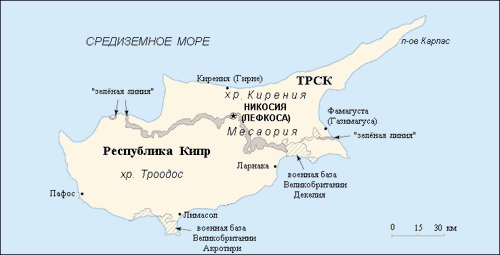 Starting from the 1950's. The most important reason for the Turkish-Greek conflict was the dispute over the island of Cyprus. Under the protectorate of Great Britain, Cyprus was inhabited by Greeks, who constituted 82% of its inhabitants, and Turks, who constituted the remaining minority of the population. The Greek majority of Cypriots advocated reunification with Greece, which was opposed by the British government and the authorities of Greece, who were in a strong political and economic dependence on London. In 1960, the island of Cyprus was proclaimed independent, after which both Greece and Turkey landed army units on the island, which were given the task of protecting places of compact residence, respectively, of the Greek and Turkish populations. Mass riots and clashes between Greek Cypriots and Turkish Cypriots repeatedly broke out on the island. In August, the Turkish Air Force 1964 attacked the positions of the Greeks in the area occupied by the Turkish troops of the village of Erenka. After the beginning of the armed confrontation in Cyprus, new acts of aggression against the Greeks living in Turkey began. Many of the "Turkish" Greeks were forced to flee the country. On the part of the Turkish nationalists, there were even demands to evict the patriarch of Constantinople from Istanbul.
Starting from the 1950's. The most important reason for the Turkish-Greek conflict was the dispute over the island of Cyprus. Under the protectorate of Great Britain, Cyprus was inhabited by Greeks, who constituted 82% of its inhabitants, and Turks, who constituted the remaining minority of the population. The Greek majority of Cypriots advocated reunification with Greece, which was opposed by the British government and the authorities of Greece, who were in a strong political and economic dependence on London. In 1960, the island of Cyprus was proclaimed independent, after which both Greece and Turkey landed army units on the island, which were given the task of protecting places of compact residence, respectively, of the Greek and Turkish populations. Mass riots and clashes between Greek Cypriots and Turkish Cypriots repeatedly broke out on the island. In August, the Turkish Air Force 1964 attacked the positions of the Greeks in the area occupied by the Turkish troops of the village of Erenka. After the beginning of the armed confrontation in Cyprus, new acts of aggression against the Greeks living in Turkey began. Many of the "Turkish" Greeks were forced to flee the country. On the part of the Turkish nationalists, there were even demands to evict the patriarch of Constantinople from Istanbul. After the advent of right-wing officers, who went down in history under the name “Black Colonial Juntas” in 1967 in April, relations with Turkey again escalated. Greek nationalists planned accession of Cyprus to Greece. On July 15, July 1974, a military coup took place in Cyprus, as a result of which the President of Cyprus, Archbishop Makarios, was removed from power and fled to Great Britain. Seized power Nikos Sampson was closely associated with Greek nationalist circles and advocated an alliance with Greece. 20 July 1974 g. In Cyprus, near the city of Kyrenia, Turkish troops landed. The regular Turkish army was able to squeeze out Greek troops from the territory of Northern Cyprus without any problems and occupied 37% of the island. Sampson's coup failed, and President Makarios reigned in Cyprus. However, Turkish troops remained in Northern Cyprus, the Turkish Republic of Northern Cyprus was proclaimed, which is considered an unrecognized state. Both Greece and the world community view Northern Cyprus as the territory occupied by Turkey. However, Turkey does not pay attention to the claims of the Greek side - while remaining the most important US Mediterranean ally for NATO, Turkey is confident that its position in Northern Cyprus will remain unchanged. Already in the 1990-2000-ies. there was a gradual improvement in Greek-Turkish relations, although disputes over Cyprus and a number of other problems still remain a serious reason for the continued tension between the two countries. In 2010, then-Prime Minister of Turkey Recep Erdogan paid an official visit to the Greek capital of Athens, while Turkish Foreign Minister Ahmet Davutoglu then said that Turkey was moving towards "psychological changes" in relations with Greece.
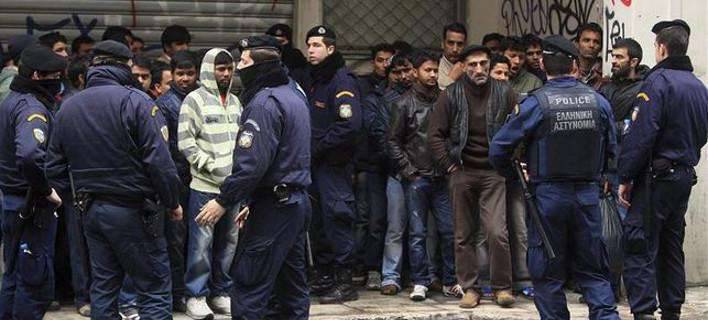
Illegal migration with the permission of Turkey
However, in recent years, relations between the two countries have begun to deteriorate rapidly. And there are several reasons for this. One of the first is the high level of illegal immigration from Turkey to Greece. Unlike Turkey, Greece is a member of the European Union, which attracts foreign migrants to it - from the countries of the Middle East, Africa, and Turkey itself. It is clear that in Greece itself, the majority of migrants do not want to remain, but prefer to use it as a springboard for further travel to the more socially and economically prosperous countries of Europe. In 2010 alone, the number of arrests of illegal immigrants in the Evros nome increased by 371,94% compared with the same period of the previous year. Unlike many other European countries, Greece is not eager to welcome Asian and African migrants on its territory. In due time, the Ottoman expansion brought too much grief to the Greek people, so that today the Greeks could calmly look at the tribesmen or co-religionists of the Ottomans. Dissatisfaction with the rigid migration policy of the Greek authorities since the beginning of the new decade of the 21st century have repeatedly expressed liberal and human rights organizations, including Amnesty International. Human rights activists were outraged by the fact that the patrolling of the Greek-Turkish maritime and land border by thousands of sailors and military personnel was outraged. The Greek authorities sought to expel the majority of Afro-Asian migrants back to Turkish territory. 20 January 2014 A fishing boat sank near the Greek island of Farmakonisi, carrying a 27 man - refugees from Asian countries. 11 immigrants from Afghanistan and Syria, including 8 children, died. According to the surviving migrants, a boat of the Greek Coast Guard towed the boat towards Turkey at high speed. Human rights activists immediately called the actions of the Greek security forces criminal, entailing tragedy.
6 March 2014. The coast guard of Greece fired from a gunshot weapons the boat carrying the 16 Syrians. Immigrants from Syria tried to swim from the Turkish coast to the Greek island of Oinous. According to European officials, the inappropriate treatment of migrants to the Greek government has already been reprimanded by the EU leadership. According to Greek experts, Turkey is well aware of the movements of tens of thousands of refugees and migrants who are trying to cross the Turkish-Greek border, but is taking virtually no real measures to counter these attempts. In an interview with the German press, this was even stated by the President of Greece, Prokopis Pavlopoulos, who noted that, according to his data, the Turkish authorities support mafia structures involved in the illegal transfer of refugees and migrants from the Turkish coast to the territory of Greece. Almost every day thousands of refugees and migrants arrive from Greece to Turkey. To transport such a number of people, you need entire bus columns that would take them to the coast, as well as dozens, if not hundreds, of boats and boats that would carry them across the sea. Naturally, the Turkish coastal authorities and the Turkish police are observing such vigorous activity; however, Ankara does not take any steps to suspend it. Greek researchers emphasize that Turkey is a police state in which police and security authorities work very well, seeking to carefully control all aspects of society. It is unlikely that anyone can believe in the ignorance of the Turkish authorities on the movement of hundreds of buses towards the coast. Accordingly, illegal migrants penetrate into Greece with the knowledge and with the direct connivance, if not to say - support, of the Turkish authorities. It turns out that Turkey, without preventing the exodus of migrants and refugees in the direction of Europe, creates additional problems for Greece, which entail destabilization of the already complex political and socio-economic situation in Greece.
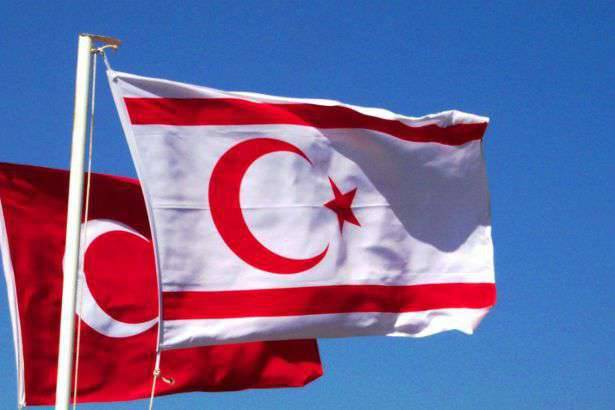
The problem of Northern Cyprus is also relevant
Remains relevant and the problem of Northern Cyprus. The Turkish Republic of Northern Cyprus is not officially recognized by the UN member states, except Turkey. However, the TRNC (Turkish Republic of Northern Cyprus) is included as an observer in the Organization of the Islamic Conference. This implies a certain level of friendly relations with it from a number of other Islamic states. At the international level, the interests of the TRNC are often represented by Turkey itself. By the way, Turkey, in turn, does not recognize the government of Cyprus. The armed conflict between the two parts of Cyprus can flare up at any time - precisely to prevent it, United Nations forces are stationed on the island and guard the border between the Republic of Cyprus and the self-proclaimed Turkish Republic of Northern Cyprus.
12 May 2014 The European Court of Human Rights ruled that the Turkish government should pay 30 million euros to Cyprus as a payment of moral damages suffered by the relatives of the missing Greek Cypriots arrested by the Turkish authorities in Northern Cyprus. Another 60 million euros were supposed to pay for moral damage to the Greeks living in the Karpas peninsula, blocked by the Turkish military. In fact, this decision of the European Court of Human Rights meant that the court is on the side of the Republic of Cyprus and does not recognize the self-proclaimed Turkish Republic of Northern Cyprus. Naturally, Ankara did not agree with the decision of the European Court of Human Rights, and then Turkish Foreign Minister Ahmet Davutoglu said that Turkey is not going to execute the decision of the court. True, it is not clear how, with such an attitude towards European justice, does Turkey still cherish the hope of integration into the European community? But, on the other hand, it seems that Ankara has already realized the impossibility of including Turkey in the composition of the European Union, therefore, it prefers to act based on its own interests.
By the way, almost immediately after the proclamation of the Turkish Republic in the territory of Northern Cyprus, its authorities, with the support of Ankara, decided to secure the controlled territory against possible attempts of forceful reunification with the rest of Cyprus. Currently, the Turkish Republic of Northern Cyprus has its own militias - the Security Forces. In terms of their functionality, they approach the border and internal troops, fulfilling the task of protecting borders and maintaining public security. The manning of the Security Forces is carried out through men aged from 18 to 40 years. The strength of the Security Forces - 3,5 Thousands of troops deployed in the 4 Infantry Regiment. In addition, 11 thousand people are in the stock of the first stage, 10 thousand people - in the stock of the second stage, 5 thousand people - in the stock of the third stage (men aged 50 and older). The Armed Forces of the Security Forces consist of small arms, 73 mortars and the 6 of the Milan ATGM. The TRNC also has coast guard with 5 patrol boats. The command of the Security Forces of the TRNC is carried out by a Turkish officer, usually with the rank of brigadier general of the Turkish army. Naturally, the small security forces of the TRNC were never considered a serious guarantee against the Cypriot or, moreover, Greek attack, therefore, impressive Turkish armed forces are deployed in Northern Cyprus. In the Turkish Republic of Northern Cyprus, the 11 Army Corps of the Turkish Armed Forces are deployed as part of the 2 motorized infantry divisions (28 and 39 motorized divisions), the 14 separate armored brigade, the Turdik mechanized brigade, and a number of other units, Turdik, and a number of other units, and a number of other units, and other units, in a unit of armored brigade, Turdik, and a number of other units, a number of other divisions, a number of other divisions, a number of other divisions, a number of other divisions, a number of other units. The strength of the 11 Army Corps of the Turkish Armed Forces exceeds 40 thousand soldiers and officers. Thus, an impressive armed contingent of Turkish and Turkish Cypriot troops with a combined strength of about 45 thousand troops is deployed in Northern Cyprus.
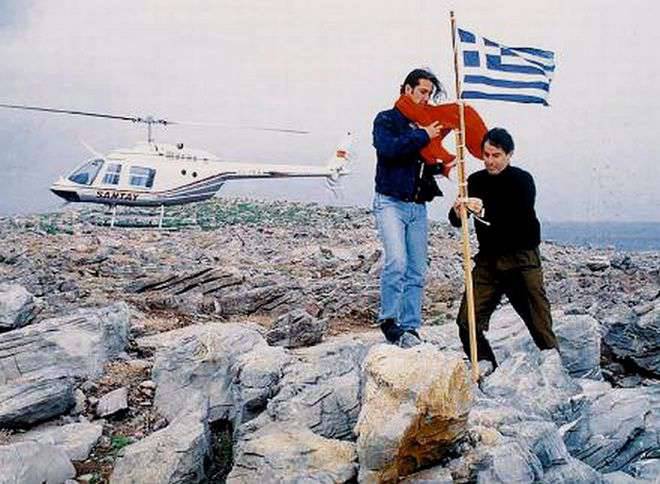
Dispute over the Aegean Islands
The conflict relations between Greece and Turkey are not limited to the problem of Northern Cyprus. The Aegean dispute is even more important, because it is one of the most important reasons for the constant clashes between the two states, which almost put them on the brink of hostilities. The exact border between Greece and Turkey in the Aegean Sea has not yet been determined; the reason for this is the mutual disputes of the two states. Despite the fact that the length of the continental coastline of Turkey and Greece is about the same, almost all the islands of the Aegean Sea (with the exception of the islands of Imbros and Tenedos) are managed by Greece. Greece also owns islands located in close proximity to the Turkish coast. It is indisputable that they are Greek both in history and in composition of the population - these are Chios, Samos, Lesbos and the Dodecanese archipelago. However, Turkey, due to so closely located Greek islands, cannot expand its sea and air zones of influence. In 1996 was Turkey and Greece were almost on the verge of a real war, and the armed clash of two NATO members was only averted by American intervention. It all started with the fact that the Turkish cargo ship Figen Akat as a result of the error of its captain and navigator, 25 December 1995. flew to the shore of one of the islands of Imia, which on the Turkish maps are called "Cardak Islands". On these islands there is neither population nor any objects. The Greek rescue service offered the captain of the dry cargo assistance in emergency response, but the captain refused and, stating that he was in the territorial waters of Turkey, turned to his compatriots, the Turkish coast guard, for help. 29th of December 1995 Turkey declared the Kardak Islands its territory, after which both countries launched an information campaign against each other. January 26, 1996 The mayor of the Greek island of Kalimios, along with a priest and two countrymen, landed on the island of Imia and raised the Greek flag above it. But on January 27, Turkish correspondents from the Hurriyet newspaper landed on the island and lowered the Greek flag and raised the Turkish national flag. The ceremony of raising the Turkish flag was broadcast on national television and led to the fact that already on January 28 a group of Greek special forces landed on the island, which again changed the Turkish flag to the Greek one. The confrontation of the two countries seemed to be inevitable, especially since both Greece and Turkey began to pull warships towards the Imia (Kardak) islands. January 30 Turkish frigate sent guns on a Greek boat and entered the territorial waters of Greece. After that, almost the entire crew of the Greek naval forces advanced into the Aegean Sea. January 31, 1996 from the frigate of the Naval Forces of Greece "Navarino" the reconnaissance helicopter rose. There were three pilots on it - Christodoulos Karatanasis, Panagiotis Vlahakos and Ektoras Gialopsos. Flying over the western of the islands of Imia, the pilots reported to the commanders that unknown armed men were raising the national flag of Turkey on the island. These were the fighters of the Turkish special forces unit who landed on the island for the same purpose - to change the flags. Soon the connection with the helicopter was gone. Understanding the complexity of the situation, the United States intervened in the conflict. After the intervention of President Clinton, Greece and Turkey went to the withdrawal of troops and the restoration of the status quo of the Imia (Cardak) Islands. But territorial claims on the islands of Greece and Turkey persist to this day.
The territorial disputes between the countries tightened after oil was found on the shelves of the Aegean Sea. At present, Greece claims to expand its territorial waters to 12 nautical miles - in accordance with the requirements of international law. Turkey, which has already expanded its territorial waters to 12 nautical miles, is very negatively disposed towards these attempts by Greece and demonstrates the rejection of international law. Exactly the same situation exists regarding the airspace and air borders of the two countries. Naturally, disputes arise over the economic exploitation of the shelf. Greece is also fighting for the right to conduct military air exercises over the international part of the Aegean Sea. Turkey makes territorial claims on several small islands, including Imia Island (Kardak). The Turkish authorities explain their position with fears in the desire of Greece to establish full control over the Aegean Sea. Greece, in turn, accuses Turkey of wanting to "capture half of the Aegean Sea" and expand its zone of influence beyond the Greek islands of Lesbos, Chios, Samos and the Dodecanese archipelago, with the result that the latter will be surrounded by Turkish territorial waters.
Who owns the airspace?
It is with the "Aegean dispute" that the constant infringement of Greek airspace by Turkish military aircraft is linked. As is known, the national airspace is the airspace above the land part of the state territory and the adjacent territorial waters. Accordingly, the right to carry out external air traffic in the national airspace has only those foreign aircraft that have been specifically authorized to do so. If civilian aircraft carrying passengers or cargo usually do not have problems moving through national airspace in accordance with international treaties, then with military aircraft it is much more difficult. Most countries of the world do not tolerate the presence of foreign military aircraft in their airspace without proper permission from the country's authorities. Back in 1974, Turkey decisively refused to recognize external 4 miles of airspace behind the Greek side. At the same time, Ankara referred to the Charter of the International Civil Aviation Organization (ICAO), adopted in 1948. In accordance with this post-war document, both airspace areas should be the same size. But Greece cites the fact of the official recognition of the Greek zone in 10 nautical miles in 1931 as an argument, and this recognition was confirmed by all neighboring states, including Turkey itself. As a result of a controversial situation, regular conflicts inevitably flare up over the flights of Turkish military aviation over the Aegean Sea, that is, in the national airspace of Greece. Turkey is convinced of its full right to fly in a four-mile lane, but Greece, in accordance with the principle of protecting the national airspace, each time raises its fighters to intercept Turkish aircraft. Repeatedly collisions in the air led to casualties. Among them is the Turkish pilot Nail Erdogan, shot down in 1996 by a Greek plane, the Greek pilot Nikolaos Sialmas who crashed near the island of Agios Efstratios while trying to intercept the Turkish plane F-16, the Greek pilot Kostas Iliakis who crashed near the island of Karpatos as a result of the collision with the Turkish F-16 aircraft.
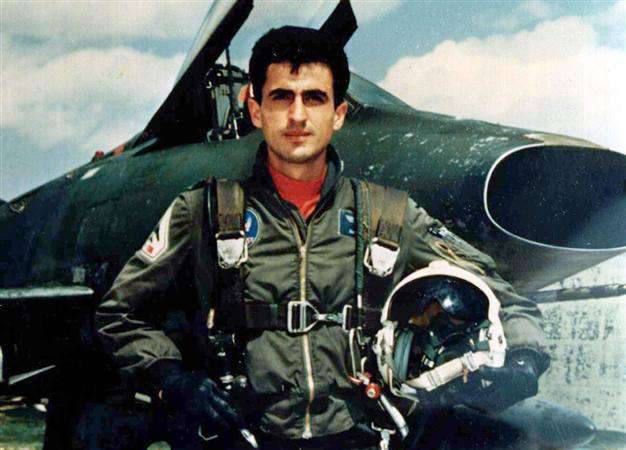
8th of October 1996 Turkish Air Force aircraft F-16 rose into the sky from an air force base in the Turkish province of Balikesir for a training flight. In the area of the island of Chios, the plane crashed. The aircraft commander, Lieutenant Colonel Osman Chilekli managed to eject. He was picked up by Greek rescuers and handed over to the Turkish command. The second pilot captain Nail Erdogan disappeared. His body was not found. Soon, the relatives of Nail Erdogan told the press that the Turkish authorities were likely to hide the real cause of the plane crash - he was shot down by the Greek Air Force. Ankara itself denied this information. 16 years passed, and in 2012 year, Lieutenant Colonel Chilekli still broke the “vow of silence”. He confirmed that the plane was indeed shot down by the Greek side. Speech by Lieutenant Colonel Chilekli forced to give an official comment and the leaders of the armed forces of Turkey. Speaking to reporters, Defense Minister Ismet Yilmaz confirmed that in 1996 The F-16D, piloted by Lieutenant Colonel Chilekli and Captain Erdogan, was shot down by an air-to-air missile launched from the Mirage-2000 aircraft belonging to the Greek Air Force. Since then, disputes about the true causes of the tragedy have not abated. The Turkish military claims that the Turkish Air Force aircraft was unarmed, while the Greek side, on the contrary, claims that the aircraft was armed and was accompanied by another aircraft. Moreover, the Turkish pilot himself went into a collision, while the Greek pilot, Tanos Grivas, pressed the trigger accidentally, with no intention of destroying the Turkish aircraft. Ten years later, the Turkish side accidentally or deliberately, but “played out” for Captain Erdogan, shot down by the Greeks. 23 May 2006, two Turkish aircraft F-16 and reconnaissance aircraft F-4 violated the airspace of Greece at an altitude of 8200 meters. The Greek aviation services were not informed about this, therefore two Greek F-16 fighters were raised to intercept Turkish aircraft. Over the island of Karpathos, Turkish and Greek aircraft collided. The Turkish pilot, Khalil Ibrahim Ozdemir, managed to eject, while the Greek pilot Kostas Iliakis died. It is possible that the above losses of the Turkish and Greek air forces are far from the last in the confrontation of the two countries for the airspace over the Aegean Sea. Neither Turkey nor Greece are willing to compromise. Moreover, the Turkish side uses provocative methods, in every possible way demonstrating its disregard for the protests from Greece. When the Turkish Air Force shot down a Russian Su-24 plane and extremists from the Turkish group killed a pilot of Lieutenant Colonel Oleg Peshkov, Greek Foreign Minister Nikos Kotzias expressed his condolences to Russian Foreign Minister Sergei Lavrov. The Greek side is well aware of how Turkey behaves in the airspace. Each year, the Greek air traffic control services record about 1,5 thousands of cases of the invasion of Turkish military aircraft into the airspace of Greece. Several times a day, Turkish aircraft fly into Greek airspace. Greece, in response, is forced to raise combat aircraft to intercept border intruders. Thus, in July 2015, six Turkish F-18 aircraft again violated the airspace of Greece and, before the Greeks lifted four fighters into the air, at least 20 once again violated the Greek air border. For Turkish military aviation, violations of the airspace of Greece have long become a familiar fact.
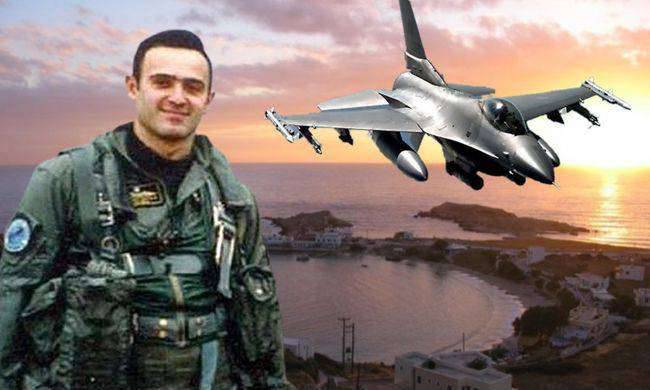
15 February 2016, the General Staff of the Greek Armed Forces reported on 20 violations of the airspace of Greece, which were committed by six Turkish military aircraft. As reported by the Greek military, such incidents most often occur during patrols in the waters of the Aegean Sea in order to prevent the infiltration of refugees from the Turkish coast into Greece. Another incident was related to the visit of Greek Prime Minister Alexis Tsipras to Iran. Due to the disagreement of the Turkish government, the Greek Prime Minister’s plane was forced to change its route. As is known, the Greek Prime Minister flies on a military plane belonging to the Greek Ministry of Defense and piloted by Air Force officers. This was enough for the Turkish side to deny the Greek aircraft the right to refuel on the island of Rhodes, which Turkey considers a demilitarized zone (the island of Rhodes belongs to Greece). Therefore, the Greek Prime Minister had to fly roundabout - through Egypt, Jordan and Saudi Arabia, which required the issuance of permission for the flight "Saudi Arabia - Iran" by the King of Saudi Arabia.
Turkish Air Force and the Greek Air Force - who is who?
The potential of the air forces of Turkey and Greece, although it has some "bias" towards Turkey, is still quite comparable for a full-fledged military confrontation. We should not forget that the Turkish army is in second place in NATO after the US Army in terms of its military-technical potential, but also the Greek army is in third place in NATO. In the regular Turkish Air Force serves 48 000 people, the reserve is 29 000 people. Combat aviation of Turkey includes 8 fighter-bomber, 7 fighter, 2 reconnaissance and 4 training and combat aviation squadrons, auxiliary aviation - 5 transport, 5 training and 1 transport and refueling squadron. The Turkish Air Force is armed with 249 combat aircraft, 103 transport aircraft, 192 training and combat training aircraft, 40 helicopters. Combat training of Turkish pilots and ground aviation services is distinguished by a high level, aimed at maintaining the constant combat readiness of the country's air forces. On the territory of Turkey there is an 34 airfield with artificial runways. In addition, the Turkish Navy also has its own aviation - they have 6 naval patrol aircraft, 22 anti-submarine helicopters and 4 search and rescue helicopters.
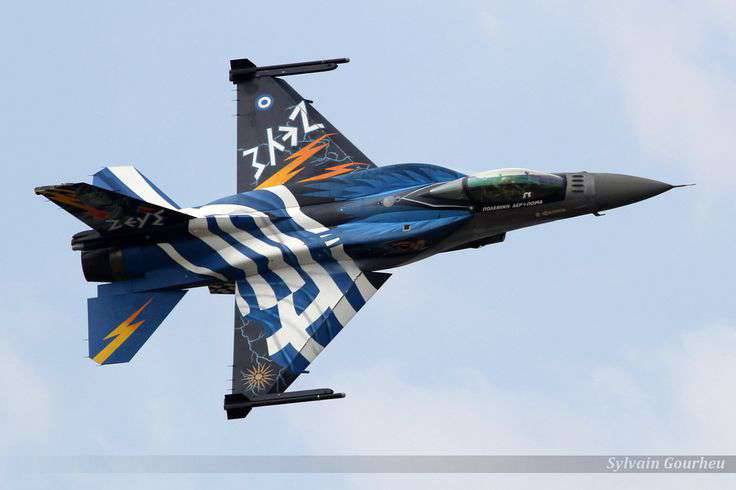
Greece has less numerous air forces, although they have an impressive number of combat aircraft. So, in service with the Greek Air Force are 250 fighters, 15 transport aircraft, 4 aircraft, radar detection and control, 27 helicopters. In addition, the Greek Navy also has naval aviation, which is armed with anti-submarine 19 and two multi-purpose helicopters, US outdated combat patrol aircraft 7. The minuses of the Greek Air Force experts include an insufficient level of funding, a large number of outdated aircraft and a poor level of combat training of flight and ground personnel. Thus, the technical potential and armament of the air forces of the two countries are quite comparable, although in terms of the number of personnel of the ground forces, Turkey still surpasses Greece. In addition, unlike the Greek military, the Turkish military has considerable experience in fighting in the counter-guerrilla war against the armed forces of the Kurdistan Workers' Party in south-eastern Turkey. The Greek military has experience of participating in hostilities as part of the NATO contingent in Afghanistan, but there were mainly auxiliary Greek units, and the number of Greek soldiers who had been in Afghanistan from 2002 to 2012. (that is, for ten years), does not exceed 3,5 thousand people. As for air collisions, it is difficult to say who, in the event of war between Turkey and Greece, will be a victory in the air. In modern history there is only one famous example of the air combat of Greek and Turkish aviation, which occurred in 1996 year - we told about it above. It ended with the victory of the Greek pilots, although the Turkish aircraft in this collision had numerical superiority.
Turkey's imperial ambitions can cost Ankara dearly. The inadequacy of the current Turkish government has led to the fact that the country has quarreled with all its neighbors, including those with whom previously had a favorable relationship. Among the main opponents of Turkey are not only neighboring Iran, Greece and Syria, but also Russia, which until recently was one of the most important economic partners of Ankara. At the same time, the United States of America has become less and less like the policy of the Turkish leadership, although so far Washington is not ready to go to Ankara’s open condemnation. Turkey is important to the United States as an essential component of NATO in the immediate vicinity of the strategically important frontiers with Russia. At least, unlike the American allies in Eastern Europe, such as Romania, Ukraine, or the Baltic states, Turkey has a very large and really efficient army. Another thing is how long the United States will be ready to cover Ankara, including in relations with other NATO members, for example, with the same Greece. Of course, for the time being, an open armed clash between Turkey and Greece is unlikely, but it cannot be completely ruled out, especially given the growing ambitions of Erdogan and the endless violations of the airspace of Greece. The patience of Athens, of course, is great, but it may come to an end.
Information